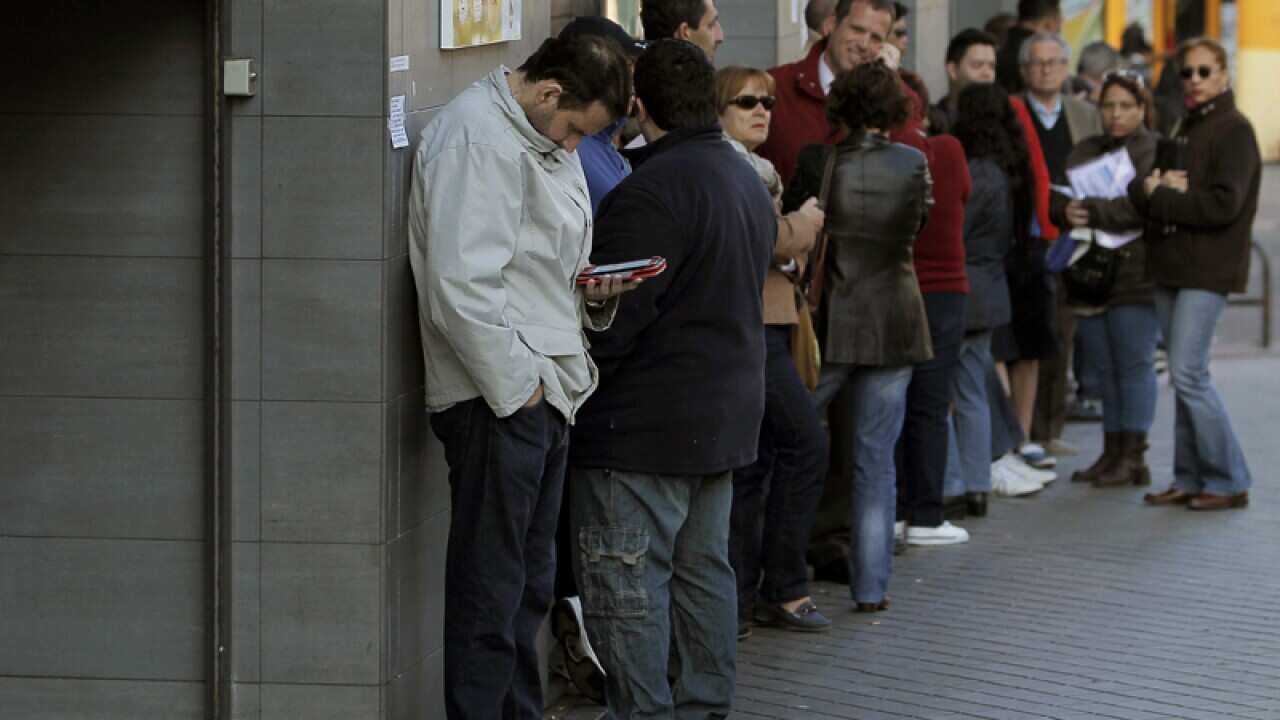The eurozone unemployment remained at record highs in June and while a first fall in the jobless numbers for more than two years offers some hope, officials and analysts are cautious about its implications.
"The figures remain horrendously high," a European Commission official said, stressing the need to press ahead with economic reforms needed to boost employment.
"Let's be frank. There is no silver lining here ... the figures are pretty much the same as the previous month."
The 17-nation eurozone jobless rate came in at 12.1 per cent, unchanged from May, the Eurostat data agency said on Wednesday.
However, the jobless numbers were down 24,000 to 19.26 million.
In the 27-member European Union, 10.9 per cent of the workforce was out of a job, down from a revised 11 per cent in May, it said, as the total unemployed fell 32,000 to 26.42 million.
Analysts had been looking to the report to back up recent data which suggested the stuttering eurozone economy was on the point of escaping a deep and damaging recession which has cost millions of jobs.
The damage done by the debt crisis and slump is clear in the figures -- in June 2012, the eurozone jobless rate was 11.4 per cent, with the EU on 10.5 per cent.
The crisis has affected the 16-25 age segment worst of all, with jobless rates running at catastrophic levels of 58.7 per cent in Greece and 56.1 per cent in Spain.
The data showed the eurozone youth unemployment rate rose to 23.9 per cent in June from 23.8 per cent in May, with the EU up to 23.2 per cent after 23.1 per cent.
Compared with June 2012, Eurostat noted that youth jobless numbers in the EU had fallen by 43,000 to 5.51 million but in the eurozone, it had increased by the same amount to 3.52 million.
Inflation meanwhile was flat in July at 1.6 per cent, suggesting that there was little increase in demand to drive prices anywhere near the European Central Bank target of just below 2.0 per cent in the medium term.
Analysts found little comfort in the figures.
Jonathan Loynes of Capital Economics said the unemployment rate "is still at a record high."
Huge differences - Austria on 4.6 per cent and Spain 26.3 per cent - "are a powerful reminder of the still enormous economic imbalances" at work in the bloc, he said.
"Overall, with unemployment high and inflation pressures weak, there is still a strong case for further policy stimulus in order to sustain the tentative signs of recovery," Loynes concluded.
AFP

